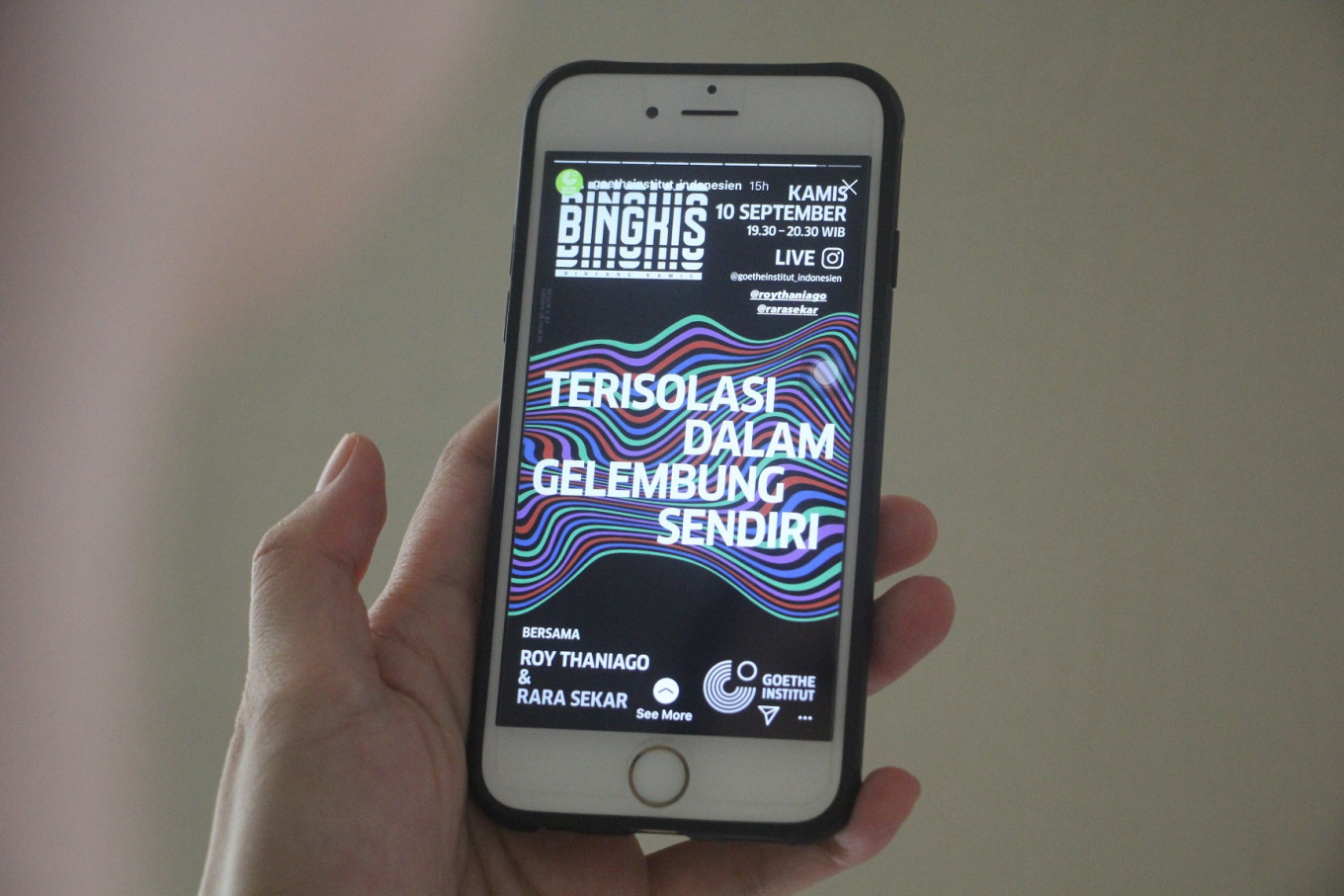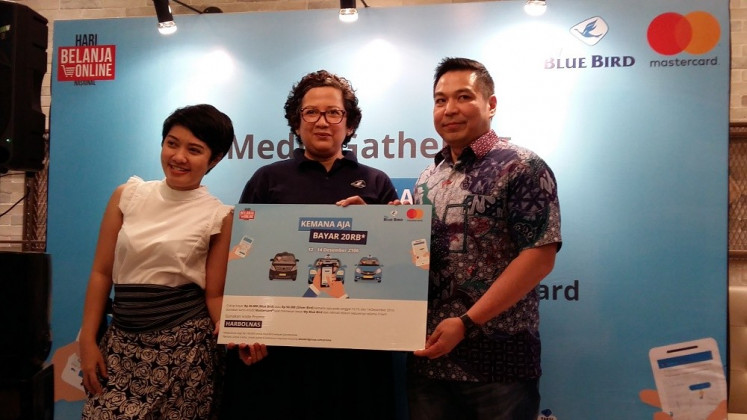Popular Reads
Top Results
Can't find what you're looking for?
View all search resultsPopular Reads
Top Results
Can't find what you're looking for?
View all search resultsThe good and bad of social media in information politics
Change text size
Gift Premium Articles
to Anyone
C
ritical thinking has never been more important than it is today, a time when people rely heavily on the internet and social media for information.
The COVID-19 pandemic has forced many people, including Indonesians, to self-isolate and work from home for months. This has made them rely on the internet for entertainment and information to an even greater extent than before.
Digital platforms, such as social media, have become the only accessible mediums of safe, widespread communication. This dependence has become a point of interest for general observers and social researchers alike.
German cultural center Goethe-Institut Indonesien hosted a talk on Sep. 10 to discuss the impact of internet dependency on democracy. Called Bingkis (Thursday Discussion), the talk featured media and culture researcher Roy Thaniago.
Roy Thaniago. (Roy Thaniago/-)Roy covered the topics of individual freedom and democracy in Indonesian social media through a philosophical lens. The talk was called “Isolated in Your Own Bubble” and was broadcast on Instagram Live.
Drawing upon German philosopher Jürgen Habermas’ concept of the “public sphere”, which he explained was “a place where citizens can get together and discuss matters without state and commercial intervention, non-hierarchal [and] equal”, Roy explored public discourse in the Indonesian context.
Roy said one of social media’s biggest contributions to democracy was that it had provided an online platform for civic discussion and collective empowerment, such as helping health workers, fundraising for the less fortunate and helping small businesses.
“Social media democratizes how we meet to discuss. Before, the thing that mediated our discussions was corporate media […]. They mediated the coverage of events and presented this knowledge to the people,” Roy said.
Roy added that social media had also changed how people produced and consumed information, with the rise of new authorities and actors in the information industry. These new players are commonly referred to as influencers, figures with large online followings who can persuade viewers, and buzzers, often anonymous accounts paid to promote certain political or social views.
While the rise of new information providers gives the public more options, the new situation has a downside as well, according to Roy, because unlike corporate media channels, such as the press, influencers and buzzers do not have a code of conduct, regulations or professional ethics.
Influencers and buzzers can easily get paid to create false narratives, either for political or commercial purposes, without being held accountable in the way that traditional media outlets are.
Therefore, Roy said, he believed that in the information ecosystem, traditional media still had a part to play in giving credence to events that were documented online.
“Journalism is the check and balance. They have the rank, the ability [and] the network to provide a counter-narrative, provide clarification, conduct checks of whether the information released by a certain group is true or false,” he said.
Government transparency was another factor, Roy said, that could be essential to creating a healthy flow of information.
“The [institution] that has the most credible and rich data is the government […] If journalists are able to access it, they can produce counter-narratives,” he said.
But the Indonesian public sphere may struggle with cultural perceptions of social importance.
“This is a problem from a cultural lens. In Indonesian culture, the party or person that has a higher rank, economic background or better job is considered more important,” Roy said.
The perception of the authority of higher social classes in Indonesian culture went against the values of democracy in the public sphere, he said, wherein the voices and opinions of individuals were regarded as equal, regardless of their background. Roy said the social structure in Indonesia remained bureaucratic and feudal.
“When we talk about public spheres in the West, feudalism has changed […] In Indonesia, we’re still at a level where feudalism is the basis of a strong social structure, so democracy becomes an incompatible dialogue with those who have authority and power,” he said.
In the journey towards combatting extremism and misinformation in politics, Roy added, it was also important to realize that digital platforms themselves were biased.
“Social media platforms have a bias that comes from the technology itself,” he said, referring to the user behavior tracking capabilities of most social media platforms.
“Social media algorithms tend to only show us what we like. For example, if we’re looking for shoes, then the social media platform feed will show shoe products more often. This is also true when we are interested in a certain political view.”
In order to avoid being biased by social media technology, Roy suggested accessing a number of different news sources with opposing views to gain a rich understanding of the whole picture.
“The more diverse our media choices are, the better,” Roy said.
The writer is an intern at The Jakarta Post.












